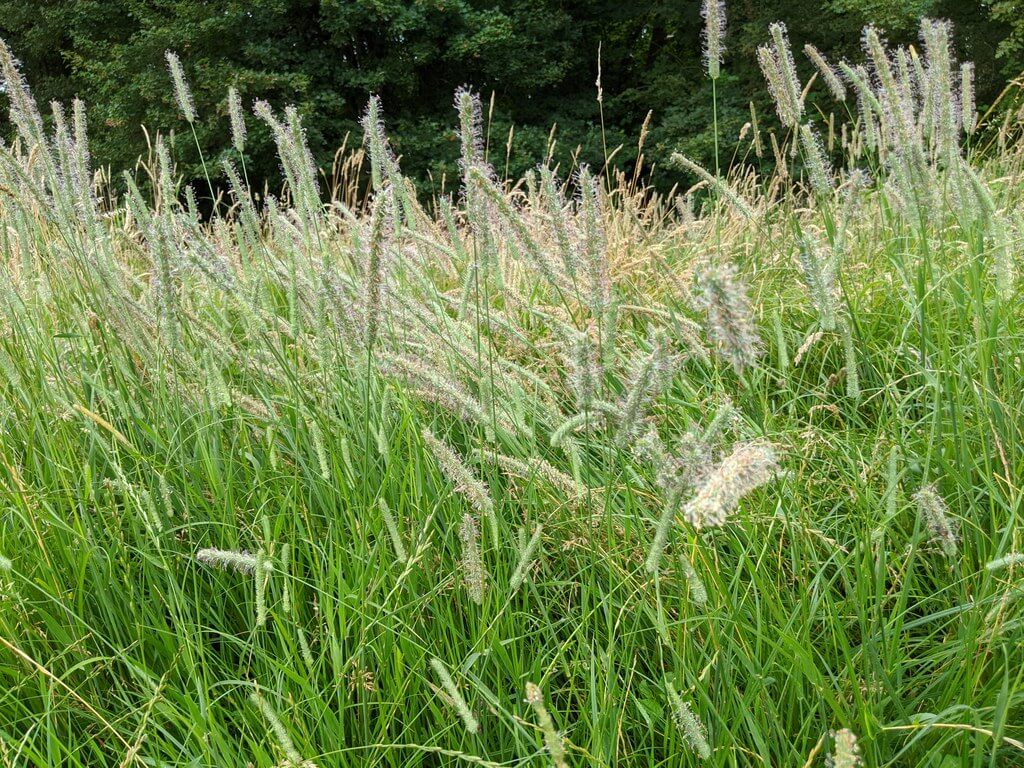
Timothy Grass Allergy – Symptoms and Treatment
Timothy grass is one of the leading causes of seasonal allergies in many individuals. Although not all grasses can cause allergic reactions, Timothy grass is abundant in many climates throughout North and South America, Europe, and Asia. This widespread area makes it one of the more common triggers for individuals with sensitivities.
Symptoms of Timothy Grass Allergy
Each individual’s tolerance is unique, and symptoms of a Timothy grass allergy can vary significantly. This species releases tiny pollen particle grains to fertilize other plants within the same species. This pollen can create numerous symptoms in individuals, ranging from mild to extreme.
Symptoms of a Timothy grass allergy can include:
- Coughing
- Itchy ears, eyes, mouth, nose, or throat
- Nasal congestion
- Red or watery eyes
- Runny nose
- Sneezing
- Swollen eyes
- Wheezing or difficulty breathing
If an individual has Asthma, the symptoms from exposure to Timothy grass can trigger more intense signs or worsen wheezing and coughing.
Causes of Timothy Grass Allergy
Timothy grass is a tall grass perennial species that grows in temperate climates. It is prevalent in fields, meadows, roadsides, and parkland areas. It has thin, flat leaves and can grow up to five feet tall. Its dense flower clusters consist of spine-like cylindrical heads that release tiny pollen particles that can affect individuals sensitive to grass pollens.
Its airborne pollen particles are seasonal and minuscule that many individuals could inhale while outdoors without realizing it. The flower of Timothy grass grows in the late spring and early summer, releasing pollen from mid to late summer and into the fall months.
Some environmental factors can minimize or intensify the causes of Timothy grass pollen, including wind and rain. For example, many allergy sufferers are more prone to symptoms on hot, dry, windy days, which is the ideal climate for spreading airborne pollen.
Diagnosis and Treatment of Timothy Grass Allergy
If you have concerns about an existing Timothy grass allergy or require a professional diagnosis of your allergy symptoms, the Frontier Allergy Asthma and Immunology professionals can help. Our allergy specialists have the training and knowledge to diagnose and treat common allergies, like those from Timothy grass.
After setting up an appointment with one of our allergy specialists, they will conduct a physical examination and review your medical history and any related family medical history. Then, if necessary, they will recommend an allergy test that can pinpoint the cause of your symptoms and help diagnose an allergy.
If your results confirm a Timothy grass allergy, your allergy specialist can guide you with a possible treatment plan to help reduce your allergy symptoms.
Depending on the severity of your allergy symptoms, your treatment plan may include one or more of these methods:
- Antihistamines
- Eyedrops and Nose Sprays
- Injectable Steroids
- Oral Steroids
- Grass Allergen Immunotherapy treatment (AIT)
Antihistamines
Over-the-counter (OTC) antihistamines can be helpful for many individuals with mild Timothy grass allergy symptoms. They can provide relief from itchy, watery eyes, a stuffy or runny nose, and sneezing. However, they are not a long-term solution for allergy sufferers with moderate to severe environmental allergies and can carry some side effects with regular use.
Eyedrops and Nose Sprays
Eyedrops and nose sprays can come in various forms, including adding antihistamines. These OTC products can help reduce redness and block allergic reactions from Timothy grass pollen that reach the eyes and nose.
Although they are inexpensive and quick-acting, they are not long-lasting and are not a long-term solution for allergy symptoms. In addition, these OTC products can also produce some side effects if taken regularly.
Injectable Steroids
Some individuals may benefit from injectable steroids as a long-term solution to Timothy grass allergies. This method slowly releases steroids into the body to help with inflammation, which can minimize pollen allergy symptoms. However, this treatment does carry some side effects and risks and will remain in the body between 3 and 12 months.
Oral Steroids
Oral steroids act much like injectable steroids, but you must take them daily to receive the full effect. In addition, it can take anywhere from two to three weeks to work and can pose side effects and risks when taken for long periods.
Grass Allergen Immunotherapy Treatment (AIT)
Grass Allergen Immunotherapy uses sublingual grass pollen to desensitize the body’s reaction to Timothy grass pollen. It can include regular allergy injections or tablets, depending on the severity of your symptoms.
Preventing Timothy Grass Allergy Symptoms
Individuals residing in locations where Timothy grass is abundant can help minimize pollen allergy symptoms by following simple guidelines. These include:
- Monitor the pollen count through a local weather report and avoid the outdoors when it is elevated
- Remain inside between 5:00 am and 10:00 am when the possibility of pollen is elevated
- Keep the lawn and grasses cut short to minimize the production of flower clusters releasing pollen
- Have another individual mow the grass or wear a mask while mowing grass
- Keep windows and doors closed in homes where Timothy grass pollen can enter
- Restrict outdoor activities to after 5:00 pm or after heavy rain when pollen counts are significantly lower
- Bathe pets regularly as pollen can enter the home through its fur
- Do not hang your clothes outside to dry during pollen season, which can collect tiny pollen particles
- Minimize alcohol intake during allergy season as dehydration can intensify allergy symptoms
Although these steps may not eliminate allergy symptoms, adhering to these guidelines can minimize exposure to Timothy grass pollen, which can cause common issues.
Foods to Avoid
Common plant foods to avoid if you have Timothy grass symptoms include:
- Melon
- Watermelon
- Citrus
- Banana
- Pineapple
- Persimmon
- Zucchini
- Tomato
- Hazelnut
- Peanut
Next Steps
If you are interested in talking to an allergy specialist about a possible Timothy grass allergy and potential treatment plans, we are here to help. Dr. Reshamwala will be happy to see you and discuss your needs and answer any questions you have about diagnosis and treatment.
Call our office today at 512-382-1933, email clinic@frontierallergist.com or schedule an appointment and find out how to minimize your Timothy grass allergy symptoms and enjoy the outdoors again.

Written/Reviewed by: Dr. Neha Reshamwala
NPI number: 1780874578
Page last reviewed: 07/24/2023


 All blog posts
All blog posts





